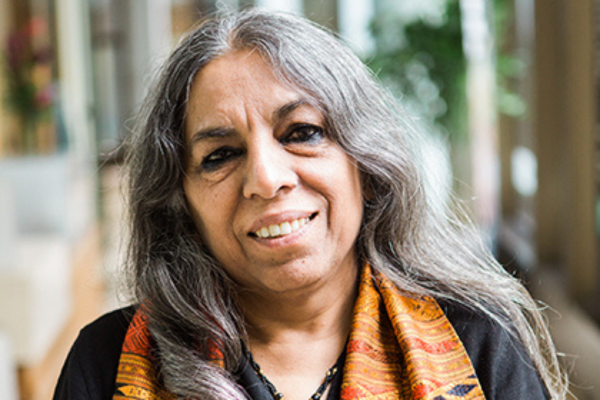"It means exercising a right while all the time being aware of the responsibility that freedom carries"

© privat
The “Woche der Meinungsfreiheit” (Freedom of Expression Week) will take place between 3 (International Press Freedom Day) and 10 May (anniversary of the book burnings) 2024. This is an initiative put together by the Börsenverein des Deutschen Buchhandels, the recently founded Freedom of Expression Foundation and the Frankfurter Agenturallianz.
The aim of the campaign week is to provide important impetus for the socio-political debate in Germany and to emphasise the importance of freedom of expression and lively debate for a democratic society.
Every year, people from over 100 countries come together at Frankfurter Buchmesse. As part of the "Freedom of Expression Week", we focus on the perspectives of international members of the publishing industry.
What does freedom of expression mean to you personally? What do you think is the biggest challenge to freedom of expression? What can publishers from around the world do to promote freedom of expression?
In cooperation with the IPA (International Publishers Association), we put these questions to colleagues from India, Turkey, Spain, Italy, the UK, Canada and the USA and brought them together here.
Urvashi Butalia, zubaan Publishing House, India
What does freedom of expression mean to you personally?
For me personally, as a feminist, a publisher, a writer, freedom of expression means, first of all, to recognize that there is no such thing as an absolute 'pure' freedom of expression. Rather, it is always contextual, it exists within a political and social framework and, while all of us may cherish the idea of absolute freedom of expression, we also know that what we say, write, speak about needs to take account of where we live, how we live, what our words can mean, not only for us, but also for the greater cause of which we are a part, and for vulnerable people. Therefore, it means exercising a right while all the time being aware of the responsibility that carries, and the context within which that freedom is exercised, and the possible consequences of our choices.
What do you perceive as the greatest challenge to freedom of expression?
It's always difficult to define one thing as the 'greatest' challenge to anything. There are many challenges to freedom of expression: foremost among these is the assumption, widespread in our world, that someone else has the right to decide how freely you can speak. A linked challenge (and not necessarily lesser in any way) is the fear and insecurity among those in power to allow voices, hitherto marginalized, to speak out. For centuries men have feared women speaking out and so they have tried to silence their voices. For centuries ruling classes have feared the voices of the oppressed, and so they have silenced them.
What can publishers around the world do to promote freedom of expression?
Publishers can do what they always do: publish responsibly, resist and challenge laws that try to restrict freedom of expression, be open to diverse voices (which many publishers are not, because it is so much easier to publish the 'safe' voices and by ignoring diversity publishers themselves are contributing to restricting the freedom of expression), work to create a bibliodiverse universe, not become mouthpieces of the State. Publishers in the global north, for example, see themselves as the creators of canons, the arbiters of knowledge and are reluctant to recognize anything that comes from elsewhere as worthy of being published. It's time that publishing too recognized that the world has changed, and that the best way to remain committed to the freedom of expression is to encourage and actively allow multiple and diverse voices to come into the arena of knowledge. To my mind, that is the path to a meaningful commitment to freedom of expression.
About Urvashi Butalia
Urvashi Butalia co-founded Kali for Women in 1984 and Zubaan in 2003. She has over 35 years of experience in feminist and independent publishing and has long been involved in the Indian women's movement. As a writer, she has authored several works, including a study on the partition of India, "The Other Side of Silence: Voices from the Partition of India", which won the Oral History Book Association Award and the Nikkei Asia Award for Culture.
About the Freedom of Expression Week
Now in its fourth year, the "Freedom of Expression Week" programme promotes the expression of opinion and lively debate for a democratic society. This year's programme includes more than 60 events throughout Germany.
Further information on the programme and the Freedom of Expression Week Charter can be found here(opens in a new window).
